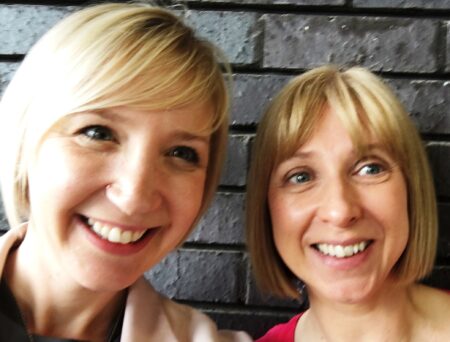Home News & Views Facilitating the transition of student nurse to registered practitioner through the development of self-care and compassion
Facilitating the transition of student nurse to registered practitioner through the development of self-care and compassion

l-r Gemma and Aimee
Gemma Stacey and Aimee Aubeeluck
Supporting student nurses to reflect on clinical placements through a variety of educational forums is accepted as good practice amongst most institutions providing pre-registration nursing programs. At the University of Nottingham regular, facilitated group clinical supervision was the established model. Students valued the peer support, the opportunity to understand the perspectives of others and consider alternative interpretations. This was achieved via a facilitation approach which gently challenged the accepted view and encouraged critical dialogue.
In many circumstances however, the opportunity to gain support and promote self-reflection of this nature was not provided to our graduates as newly qualified nurses. We heard numerous accounts of them feeling overwhelmed by the transition to registered practitioner, doubting their ability to realise their personal standards of nursing care and frequently placed in moral conflict as a result of poor resources and a lack of senior support. It was evident that the educational environment we had developed was not facilitating the transition process and may in fact be creating a dependency on a support structure which would not be available to them at the most crucial time.
In order to address this issue, funding was granted by the Burdett Trust for Nursing to develop an alternative model for group clinical supervision underpinned by the principles of self-compassion and mindfulness. Facilitators were trained to use strategies which promoted self-care amongst students. This included the incorporation of regulated breathing, grounding exercises and compassionate imagery into the supervision sessions. Students were enabled to analyse their emotional response and personal motivation toward different scenarios and explore alternative or preferred outcomes through the use of role play. Evaluation of the alternative approach through validated measures and focus groups demonstrated the ongoing use of mindfulness in practice to manage challenging scenarios. Additionally the occurrence of self-criticism and personal blame was absent from their accounts 6 months post registration despite experiencing highly stressful situations and working in clinical environments characterised by high staff turnover and acute patient distress. Compassion to self remained high, there was no evidence of compassion fatigue and fear of compassion had reduced.
Based upon our findings we are able to tentatively recommend this approach to personal development amongst students, whilst also recognising the limitations of our small sample size and the numerous variables which could have influenced the transition experiences of our students. Furthermore we accept the sustainability of these skills for self care is limited where continuous practice is not promoted. As a result we are currently in the early stages of a further pilot which explores the feasibility of rolling out the supervision model into preceptorship programmes in a variety of trusts across the East Midlands. This project has also been supported by the Burdett Trust for Nursing as part of their agenda to improve resilience and retention in nursing.
Comments are closed.

